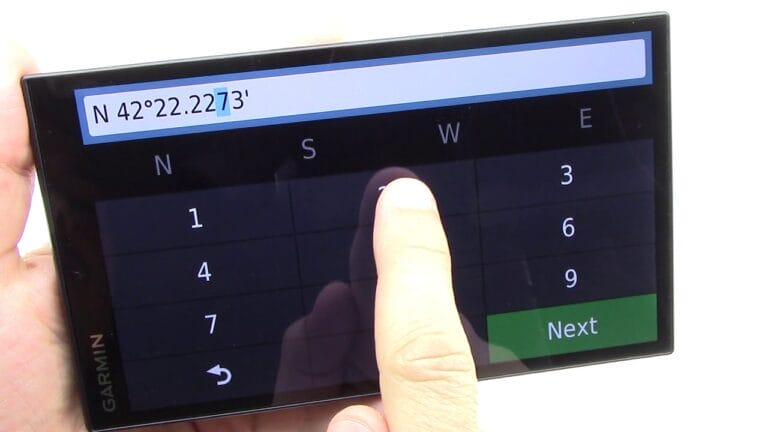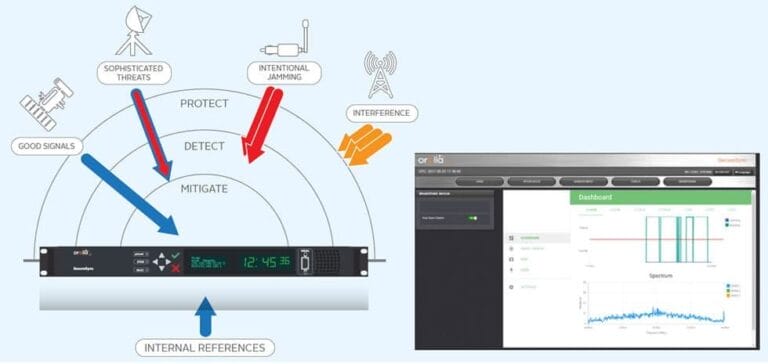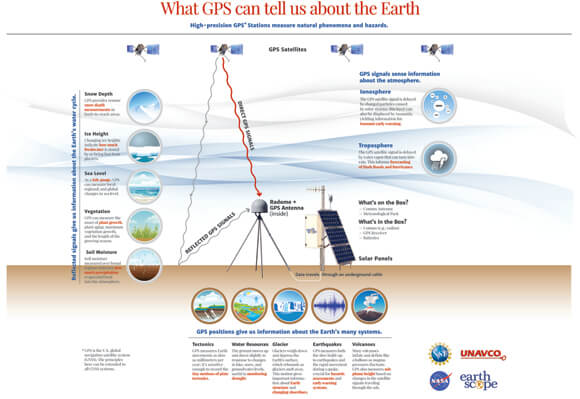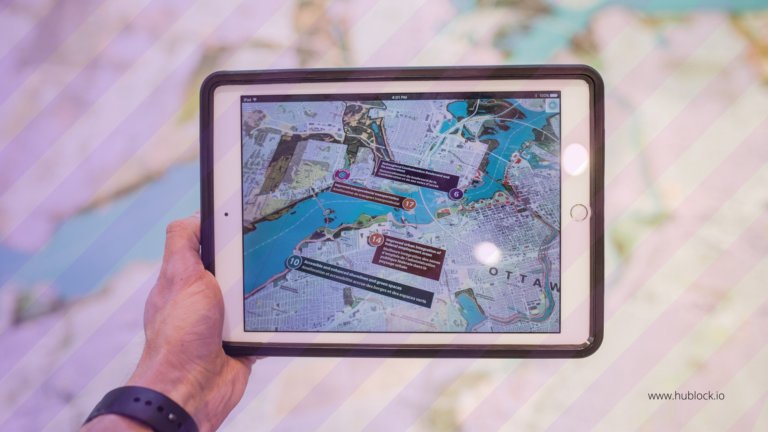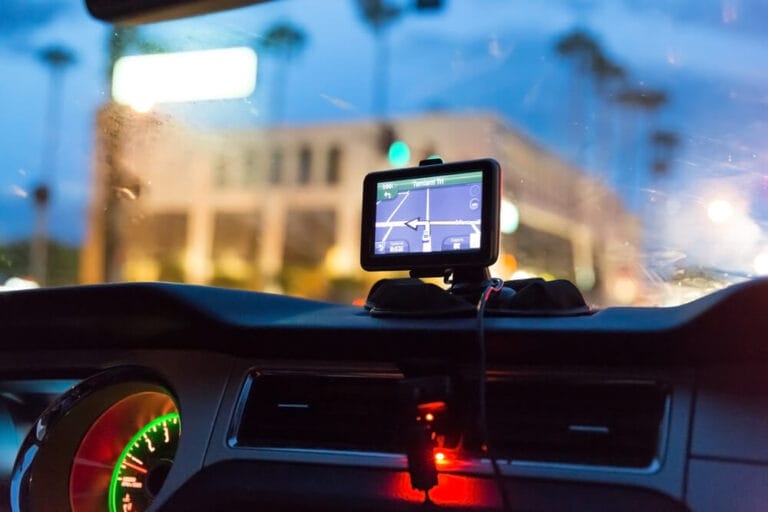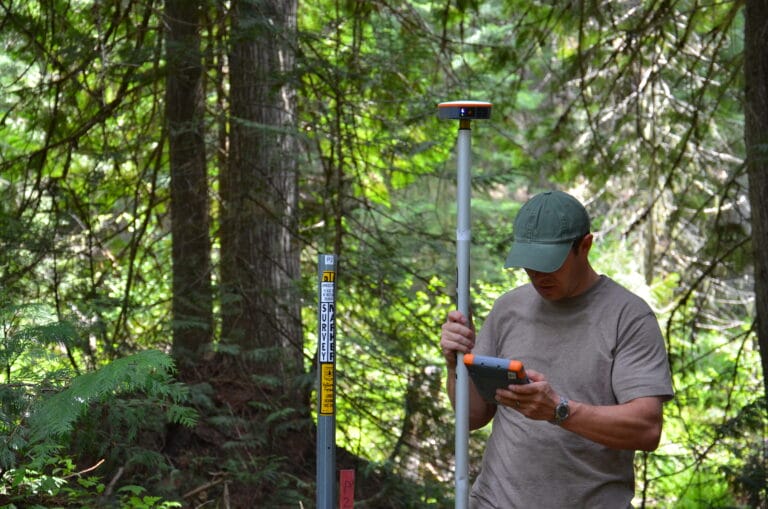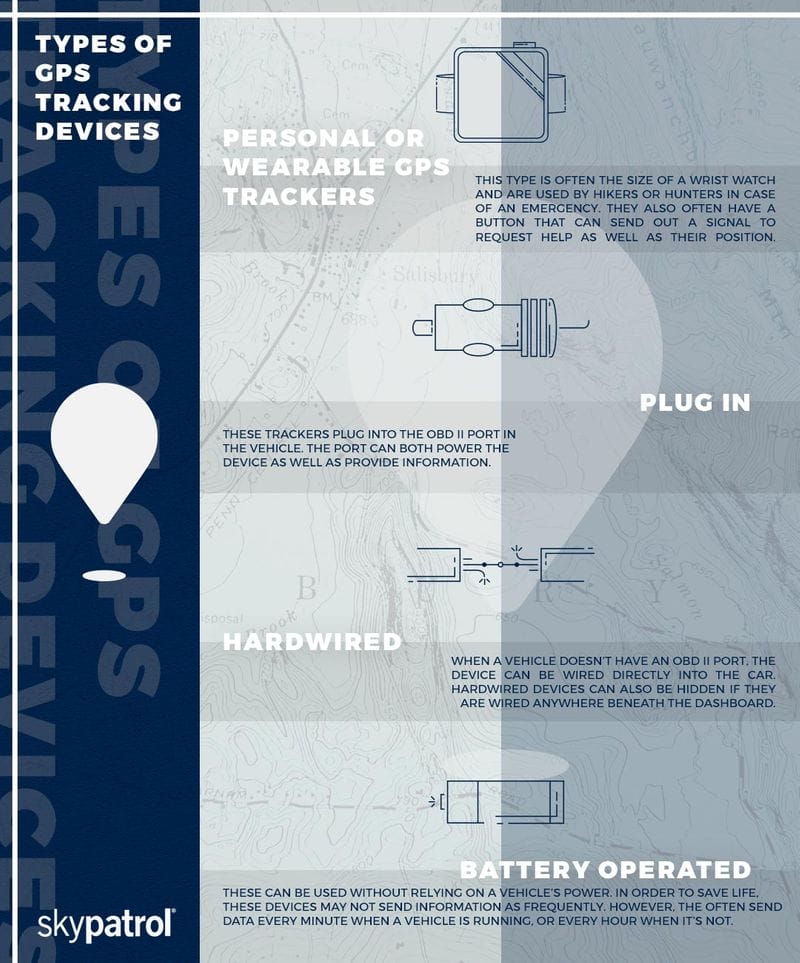
What Are the Types of GPS Tracking Devices? Let’s dive into the fascinating world of GPS tracking devices and discover the various types available. Whether you want to keep track of your car, ensure the safety of a loved one, or track your pet’s whereabouts, GPS tracking devices have become incredibly versatile tools in today’s world.
Imagine being able to locate your belongings or loved ones with just a few taps on your smartphone. Well, GPS-tracking devices make that possible!
From personal trackers to vehicle trackers and even pet trackers, there’s a wide range of options to choose from based on your specific needs.
So, get ready to explore the different types of GPS tracking devices and find the perfect one for you. Let’s dive in!
GPS tracking devices come in various types, each with unique features that cater to different needs. The types of GPS tracking devices include portable trackers, vehicle-mounted trackers, personal trackers, asset trackers, and pet trackers.
Portable trackers are compact and can be easily carried around, while vehicle-mounted trackers are designed for monitoring cars and fleet management.
Personal trackers are ideal for tracking loved ones or monitoring employees, while asset trackers help keep track of valuable items. Pet trackers are specifically designed for tracking pets. Explore the different types of GPS tracking devices to find one that suits your needs.
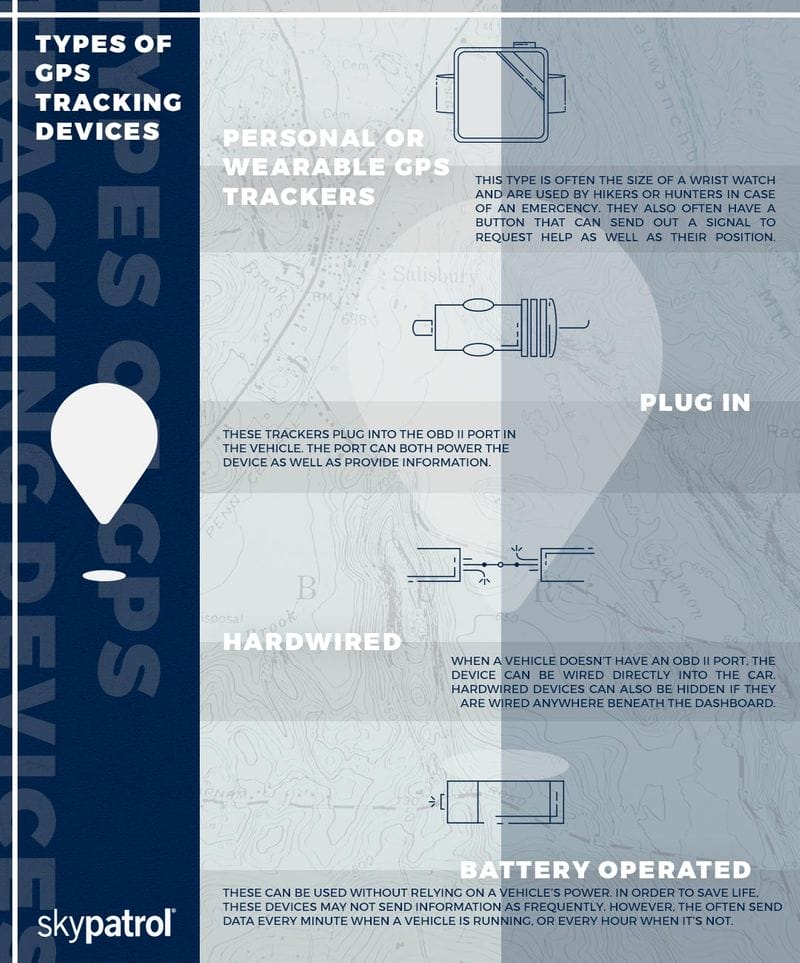
GPS Tracking Devices: Exploring the Different Types
In today’s technological era, GPS tracking devices have become an essential tool for various industries and individuals alike. These devices leverage the power of global positioning systems to accurately track and monitor the location of vehicles, assets, and even people.
With advancements in technology, there are now several types of GPS tracking devices available in the market. In this article, we will delve into the various types of GPS tracking devices and explore their features, applications, and benefits.
1. Portable GPS Trackers
Portable GPS trackers are compact, lightweight devices that can be easily carried or attached to different objects. These trackers are popular among backpackers, hikers, and outdoor enthusiasts who want to ensure their safety and keep track of their location during their adventures.
Portable GPS trackers often come with additional features such as SOS buttons, two-way communication, geofencing capabilities, and long battery life.
Whether you are on a wilderness expedition or exploring unfamiliar cities, portable GPS trackers can provide peace of mind by allowing you to share your real-time location with loved ones or emergency services. These devices are usually designed to be rugged, and waterproof, and have a variety of mounting options for different applications.
Benefits:
- Enhanced safety and security during outdoor activities.
- Real-time tracking and location sharing capabilities.
- SOS features for emergency situations.
- Durable and rugged design for various environments.
2. Vehicle GPS Trackers
Vehicle GPS trackers are specifically designed to track the location, speed, and other metrics of vehicles. These devices are widely used by fleet management companies, car rental agencies, and individual vehicle owners.
Vehicle GPS trackers are typically installed discreetly in vehicles and can be easily integrated with the vehicle’s electrical system for continuous power supply.
One of the key benefits of vehicle GPS trackers is their ability to provide real-time vehicle tracking data. This data includes location history, speed monitoring, geofencing, and even vehicle diagnostics.
Fleet managers can optimize routes, monitor driver behavior, and ensure timely delivery of goods. Individual vehicle owners can use these trackers to prevent theft, track mileage for expense reporting, and monitor the driving habits of young or inexperienced drivers.
Benefits:
- Real-time vehicle tracking for enhanced fleet management.
- Location history, speed monitoring, and geofencing functionalities.
- Vehicle diagnostics for maintenance and performance optimization.
- Anti-theft and stolen vehicle recovery features.
3. Asset GPS Trackers
Asset GPS trackers are designed to secure and monitor valuable assets such as construction equipment, shipping containers, and high-value cargo.
These trackers are ideal for industries like logistics, construction, and agriculture where assets are often spread across different locations. Asset GPS trackers can alert the owner or manager if an asset is moved without authorization or enters restricted areas.
One of the key features of asset GPS trackers is their long battery life and durability. They are built to withstand harsh environmental conditions and have a compact design for easy concealment.
Asset GPS trackers often come with tamper alerts, geofencing capabilities, and advanced reporting features to monitor asset utilization, reduce theft, and optimize asset allocation.
Benefits:
- Enhanced security and theft prevention for valuable assets.
- Real-time alerts for unauthorized movement or entry into restricted areas.
- Advanced reporting features for asset management and optimization.
- Long battery life for extended monitoring periods.
4. Personal GPS Trackers
Personal GPS trackers are designed to provide location tracking and safety features for individuals. These devices are commonly used for tracking the whereabouts of children, elderly family members, and individuals with special needs. Personal GPS trackers can be worn as a watch, or pendant, or attached to clothing or personal belongings.
In addition to real-time location tracking, personal GPS trackers often have features such as panic buttons, two-way communication, and geofencing.
These devices provide peace of mind for caregivers by allowing them to monitor the safety and well-being of their loved ones. Personal GPS trackers can also be used by athletes or adventure enthusiasts who want to track their performance or share their location during their activities.
Benefits:
- Enhanced safety and peace of mind for caregivers.
- Real-time location tracking and geofencing functionalities.
- Panic buttons and two-way communication for emergencies.
- Durable and wearable designs for easy usage and portability.
Frequently Asked Questions
If you’re curious about the different types of GPS tracking devices available, you’ve come to the right place. Below, you’ll find answers to the most commonly asked questions regarding GPS tracking devices.
How do GPS tracking devices work?
GPS tracking devices work by utilizing a network of satellites to determine the device’s location. These satellites communicate with the GPS tracking device, which then calculates its precise position on Earth.
The device collects data such as latitude, longitude, and altitude. This information is then transmitted to a receiver, such as a smartphone or computer, for real-time tracking.
GPS tracking devices can use various technologies, including cellular networks or dedicated satellite networks, to transmit the location data. Some devices even have additional features, such as geofencing, which allows users to set virtual boundaries and receive alerts if the device moves outside those boundaries.
What are the different types of GPS tracking devices?
There are several types of GPS tracking devices available, each with its own unique features and use cases. Some common types include:
1. Personal GPS Trackers: These small devices are typically used to keep track of loved ones or pets. They can be attached to backpacks, and collars, or worn as accessories.
2. Vehicle GPS Trackers: Designed specifically for automobiles, these trackers are often used for fleet management or personal vehicle tracking. They can provide real-time location data, speed monitoring, and other vehicle-specific information.
3. Asset GPS Trackers: These devices are used to track valuable assets, such as construction equipment or shipping containers. They are often rugged and designed to withstand harsh environments.
4. Fitness GPS Trackers: These trackers are built for fitness enthusiasts and athletes. They can track activities such as running, cycling, and swimming, providing data on distance, pace, and heart rate.
5. Marine GPS Trackers: Designed for boating and maritime applications, these trackers can provide location and navigational data while at sea.
The type of GPS tracking device you choose depends on your specific needs and intended use, so it’s important to consider your requirements before making a purchase.
Are GPS tracking devices legal to use?
GPS tracking devices are generally legal to use, but there are some important considerations. The legality of using a GPS tracking device can vary depending on the jurisdiction and the purpose of tracking.
For example, it may be legal to track your own vehicle for theft prevention or to monitor the activities of a minor child, but it may be illegal to track someone without their consent or knowledge.
It’s important to familiarize yourself with local laws and regulations regarding GPS tracking devices before using one. Additionally, if you plan to track someone else’s property or vehicle, you should obtain their permission in order to comply with privacy laws.
How accurate are GPS tracking devices?
GPS tracking devices are typically very accurate, providing precise location data within a few meters. However, the accuracy can be influenced by various factors, including signal strength, obstructions (such as tall buildings or dense forests), and the quality of the GPS device itself.
In open areas with a clear view of the sky, GPS tracking devices can provide highly accurate location information.
It’s worth noting that some GPS tracking devices may have better accuracy than others. High-end professional-grade devices typically have better signal reception and more sophisticated positioning technology, resulting in increased accuracy.
If precise location data is crucial for your application, it’s advisable to choose a GPS tracking device known for its accuracy.
How long does the battery of a GPS tracking device last?
The battery life of a GPS tracking device can vary depending on several factors, such as the device’s features, power-saving settings, and usage patterns. Some GPS trackers are designed to have long battery life and can last for several days or even weeks on a single charge.
However, other GPS tracking devices, particularly those that transmit frequent updates or have additional features like live tracking or geofencing, may have shorter battery life.
These devices may require more frequent charging to ensure continuous operation. It’s important to carefully consider your tracking needs and battery life requirements when selecting a GPS tracking device.
So, to sum it all up, GPS tracking devices are pretty cool gadgets that can help you keep tabs on things. There are three types: personal, vehicle, and asset trackers.
Personal trackers are great for keeping track of loved ones or pets, while vehicle trackers can help you monitor your car’s location and even its speed. Asset trackers are perfect for businesses that want to track valuable items.
Each type of tracker uses GPS technology to determine the device’s location and then sends that information to a receiver, like your smartphone or computer.
This way, you can easily find what you’re looking for or keep an eye on something important. Just remember, these devices are meant to be used responsibly and with permission. Happy tracking!

